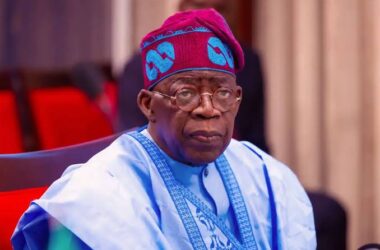The Economic and Financial Crimes Commission (EFCC) has called on Nigerian filmmakers to thoroughly investigate the sources of funding they receive for their productions. This warning was issued during the National Film and Video Censors Board Round Table Forum at the Second Lagos International Film and Cinema Convention.
The forum brought together filmmakers, producers, exhibitors, and distributors under the theme, “Morality and Ethics in Film Production in Nigeria.”
The Chairman of the EFCC, Mr. Olanipekun Olukayode, who was represented by the Head of Public Affairs for the EFCC Lagos Directorate, Ayo Oyewole, emphasized the importance of filmmakers ensuring that their industry does not become an avenue for money laundering.
Oyewole urged filmmakers to be cautious about accepting funds for film production without properly vetting the sources, stating, “filmmakers must conduct due diligence on funds for their productions otherwise they act as couriers for illicit funds.”
He further stressed the need for filmmakers to apply a “know your customer” policy before accepting any financing for their projects to avoid being inadvertently involved in illegal activities.
The Executive Director of the National Film and Video Censors Board, Dr. Husseini Shaibu, supported the EFCC’s position. He encouraged filmmakers to be more vigilant about where their funding comes from, also criticizing the portrayal of crime in some films. He lamented that the punishment often depicted for criminal actions in movies is not proportional to the crime committed, further complicating societal issues.
Shaibu also pointed out that as the EFCC cracks down on estate developers and the advertising of tobacco in the media, the film industry is becoming a new target for illicit funds.
In response, the President of the Cinema Exhibitors Association of Nigeria, Mr. Opeyemi Ajayi, raised concerns over the feasibility of the EFCC’s request. He argued that the film industry is largely privately funded, with little to no government support, making it difficult to control where the money originates.
Veteran filmmaker Teco Benson echoed this sentiment, suggesting that if the EFCC wanted specific content produced, they should consider funding the projects themselves. Benson emphasized that filmmakers are primarily focused on repaying the funds they receive, not tracking their origins.
While acknowledging these concerns, Oyewole clarified that the EFCC does not provide financial support for film projects nor does it interfere with script content. He stressed that the Commission’s appeal is simply for filmmakers to be more cautious and strive to promote ethical storytelling that benefits the country’s economy and moral fabric.










